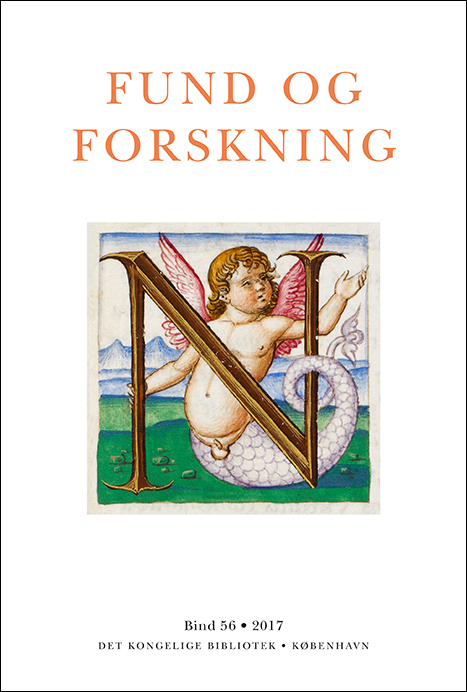Et dansk-norsk provinstrykkeri. Nye perspektiver på opprettelsen av det første boktrykkeri i Norge
DOI:
https://doi.org/10.7146/fof.v56i0.118931Resumé
Ernst Bjerke: A Danish-Norwegian provincial press. New perspectives on the establishment of the first printing press in Norway
It is often stated as a matter of fact that Norway, independent only since 1814, was one of the last European countries to have its own printing press. That a press was finally set up in Christiania in 1643 is usually ascribed to the private initiative of the prolific theologian Christen Bang. However, Norway was at the time a province of Denmark, whose centralized government did not allow the establishment of provincial presses until the early 17th century. The first press in Norway must be viewed as one of a number of permanent presses set up in the provinces at this time. Furthermore, the decision to allow a press in Christiania is clearly connected with the foundation, a few years earlier, of a gymnasium, an academy of sorts, in connection with the old cathedral school. There are several examples of presses connected with institutions of learning in Denmark, and Christiania, with its gymnasium, conforms to this model.
While Bang may have invited the first printer to establish his press in Christiania, he could not have done so without the express permission of central government, and were it not for the gymnasium, the printer would not have found work. Christiania’s first printer became entangled in a lawsuit against his patron and left town after only one year. When it came to appointing a successor, the sources reveal that government, both locally in Christiania and centrally in Copenhagen, took firm charge, in order to provide the press with tenable conditions. The printer was provided with a fixed wage, and there is even reason to believe that the Christiania press was exempted from centralized censorship in Copenhagen.
The Christiania press ought not to be considered as one of the last national presses to be established in Europe (its influence, anyway, never reached far past Christiania’s walls), and not as the accomplishment of one private individual. It was in fact one of the earliest provincial presses in the Danish state, established as part of a general expansion of institutions of learning undertaken by the state at that time.


